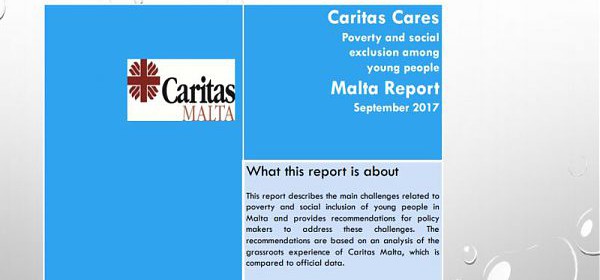FOR YOUNG MALTESIS DIFFICULT TO HAVE INDIPENDENT LIFE

Although the unemployment rate in Malta is one of the lowest in the European Union, young Maltese people still face major difficulties when renting accommodation due to very high prices. This resulted from a recent report published by Caritas on the main challenges related to poverty and social inclusion of young Maltese people. The report includes a recommendation to the Government of Malta to address these challenges. All proposals are based on analysis and experiences collected by Caritas Malta.
“Living in Malta seems like paradise. This may be true for tourists visiting the island but, unfortunately, for those with low income this presents a major obstacle because one cannot make plans for the future”, said a young man who benefits from the services offered by Caritas Malta. The young man shared his experience and struggle to live. “Personally, I cannot save anything from the monthly pay. My salary is very low and it is quite difficult to live decently. Three quarters of my salary is used to pay rent and electricity bills”.
According to Caritas Malta, this story is not isolated or one of the few. The official report of the non-governmental organization lists Malta’s major challenges in relation to poverty and social exclusion of young Maltese mainly: the minimum wage does not guarantee a decent life; a rigid school system that does not ease the transition from the education system to the working world; young Maltese have difficulty starting an independent life away from their parents’ home and there is little opportunity for marginalized young people.
Caritas Malta’s recommendation to the Government of Malta is to increase the opportunity of social housing, subsidize rental fees and ensure an adequate minimum wage. The non-governmental organization proposes a reform of the academic and vocational educational system, so that young Maltese people can easily enter the labor market. Despite Malta’s record-breaking economic outcomes, the country has the lowest proportion of adults in tertiary education and is in the penultimate position of the EU countries with the highest percentage of early school leavers.
Each year Caritas Malta treats about 700 drug victims with an average age of 27 years. The Maltese Government is being asked to set up rehabilitation facilities for children under the age of 18 and to strengthen the services for the integration of young criminals.
(ITALPRESS).
Source: medNews

